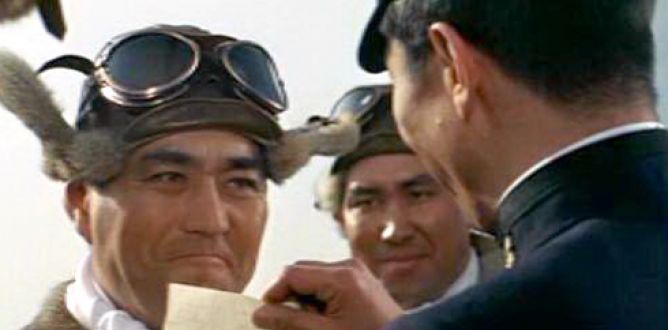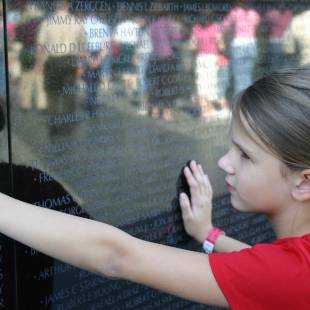Tora! Tora! Tora! Parent Guide
If you're interested in sharing a piece of military history with your children yet are concerned about the extreme violence in many newer war epics, "Tora! Tora! Tora! "may be perfect.
Parent Movie Review
If you’re interested in sharing a piece of military history with your children, a la Hollywood, yet are concerned about the extreme violence in many newer war epics, Tora! Tora! Tora! may be the perfect alternative.
Released in 1970, this unique movie saw the blending of two completely separate film units—one headed by Japanese directors Kinji Fukasaku and Toshio Masuda, the other helmed by U.S. filmmaker Richard Fleischer. This strategy allows both sides of the conflict to be explored in a very separate yet integrated way.
Early sequences in this over two hour long World War II drama begin with the Japanese preoccupation over their war with China, and Germany’s attempt to woo the Rising Sun into an alliance with them. Knowing the U.S. will retaliate if they continue building such relationships, the Japanese navy reluctantly agrees that their only hope is to hit the U.S. before they aim their guns at Japan.
Of course we all know the resulting outcome of that fateful day of December 7, 1941, including the many blunders made by U.S. military brass who were convinced Hawaii was unreachable by the Japanese or anyone else.
Tora! Tora! Tora! doesn’t suffer from multi-million dollar celebrities demanding grandstanding roles or limiting itself to look at the event through the eyes of one character. Instead Tora! uses it’s long running time to contrast the Japanese preparations against the many missed opportunities provided to the Americans that might have changed the course of the war. The film brings a huge cast to the screen in an effort to carefully replicate the many people who had a role in this infamous day.
Obviously the battle sequence is full of bombs, bullets, busted battleships, and bodies, but considering the topic involved, Fleischer gives us just enough carnage to get the point across. We can let our imaginations and historical fact do the rest. With the exception of the many mild four letter words, parents looking to provide their children with a look at the past would do well to check out this excellent movie.
Directed by Richard Fleisher. Starring Martin Balsam, James Whitmore, Jason Robards, Joseph Cotton. Running time: 145 minutes. Theatrical release September 22, 1970. Updated July 12, 2016
Tora! Tora! Tora!
Rating & Content Info
Why is Tora! Tora! Tora! rated G? Tora! Tora! Tora! is rated G by the MPAA
Overall: A- Created before computers could make light work of a major battle sequence, Tora! Tora! Tora! has long been hailed as an historical recounting of the Japanese attack on Pearl Harbor. The DVD edition, complete with documentary and commentary from the U.S. director of the movie, provides additional insight into this infamous day. Parents should expect war violence, but never to the point of being gratuitous, however some may be concerned about the amount of mild profanities. Also, note that by today’s criteria, this film would rate PG or perhaps PG-13.
Violence: C Most of the movie involves preparation for the attack. All violence is contained within the actual attack sequence: Two men shot at by planes but not hit. Machine guns shoot down plane. Men shot at in open field. Three men are shot; two men possibly killed or injured by bomb. Men flee from tarmac as planes are destroyed. Men injured by falling debris. Dead bodies seen. Plane shot down. Men hit by bombs. Two planes attempting to take off are bombed causing them to hit other parked planes and creating an explosion. Supply truck is bombed—driver assumed to be dead or heavily injured. Men blown overboard by bomb blast. Men inside flooding ship struggle to get out. Two men with clothes on fire have flames extinguished by other men. Three more planes shot down. Jeep crashes with driver thrown to the floor of vehicle. Man operating a gun has injured bloody arm. Man in disabled plane deliberately crashes into airplane hanger causing explosion.
Sexual Content: A
Language: C+ At least: 2 moderate profanities, 27 mild profanities, 5 terms of deity used as expletives or profanities, and 3 uses of a racial slang term.
Alcohol / Drug Use: B- Some characters are briefly seen smoking, as are other background extras. Social drinking.
Page last updated July 12, 2016
Tora! Tora! Tora! Parents' Guide
Watching an exciting movie can make it easy to forget the 2,403 who died and the 1,178 who were wounded as a result of the attack. For more information on Pearl Harbor check out: Pearl Harbor Attacked http://www.pearlharborattacked.com/
Home Video
The most recent home video release of Tora! Tora! Tora! movie is December 6, 2011. Here are some details…
Blu-ray Notes: Tora! Tora! Tora!
Blu-ray Release Date: 6 December 2011
Tora! Tora! Tora! releases to Blu-ray on December 6, 2011. This version includes the extended “Japanese Cut” containing 10 minutes of previously unreleased footage and rare photos from the Fox Archives.
DVD Notes: Tora! Tora! Tora!: 2-Disc Special Edition
DVD Release Date: 23 May 2006
Tora! Tora! Tora! blasts onto DVD in a 2-Disc Special Edition. Director Richard Fleisher and Japanese film historian Stewart Galbraith offer an audio commentary, which supports the amount of factual information contained in the movie. The inclusion of two documentaries provides even more historical background, as well as actual footage of the attack (a few mild profanities were noted). Film buffs will also appreciate the featurette AMC Backstory: Tora! Tora! Tora!, a behind-the-scenes stills gallery, ten Fox Movietone News clips, and the theatrical trailer. The 2006 DVD release features spectacular color and a Dolby Digital 4.1 soundtrack that puts it on par with current new releases. Audio tracks are available in English, French and Spanish, with subtitles in English and Spanish.
Related home video titles:
If you are looking for another film that chronicles military decisions behind the scenes, try 13 Days—a portrayal of the Cuban Missile Crisis. This story was put to film again in the 2001 film Pearl Harbor.


